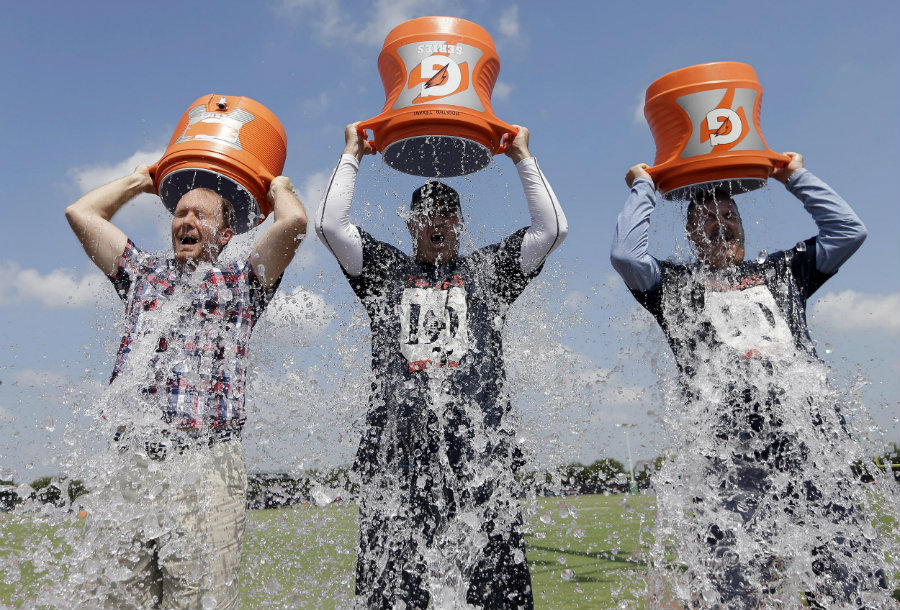The U.S. Food and Drug Administration approved the use of Radicava (edaravone) as a treatment for Lou Gehrig’s disease, or amyotrophic lateral sclerosis (ALS).
The decision comes after successful trials in Japan demonstrated that the drug could be safely used in a clinical environment.

According to FDA’s Eric Bastings, this is the first treatment for ALS approved in many years.
The ALS ice bucket challenge may have worked after all
ALS is a rare disease that gained increased recognition through the “ALS ice bucket challenge,” where participants progressively lose control of their muscles and eventually suffer from paralysis. At least 12,000 Americans have ALS, and most die less than five years after symptoms start appearing.
The drug Radicava is injected over the course of two weeks after the patient has been clear of medications for another two weeks. The treatment is then cycled on two-week periods until the patient gets better
The trials in Japan lasted six months, where 137 patients received either the drug or a placebo. At the end of the trial, subjects who were administered Radicava showed a lesser declination rate in daily functioning tests. The reported side effects were minimal, consisting mostly in bruising and gait disturbance. The FDA warns that Radicava does carry some risks, such as swelling and allergic reactions, but it is also supporting more studies to understand it further and ensure ALS patients a timely and safe recovery.

Patients who have ALS have malfunctioning nerve cells, impairing both simple and complex movements such as walking, breathing, breathing, and talking. Diseases like ASL act upon motor neurons, which are connected to the brain and the spinal cord, being the main contributor to how our nervous system communicates with the rest of our body.
With ALS, motor neurons degenerate slowly and stop sending messages to the muscles. They eventually start twitching and weakening, leading to atrophy and impaired movement.
A complex disease finally gets a cure
ALS is more common in people aged between 55 and 75, although it may affect people of all ages and ethnicities. Also, men are more likely to develop the disease when they are younger. Some studies propose that military veterans may be at a higher risk of suffering the disease, perhaps due to exposure to lead and other toxins.
The National Institutes of Health warns that some cases of ALS are hereditary. The disease may be carried over if one of the parents has the gene defect C9ORF72.
The first symptoms tend to be twitching in the arms or hands and difficulty controlling them when performing complex tasks. In other instances, twitching may start at lower limbs. The disease progresses differently from person to person, rendering some patients unable to walk or breath.
The ice bucket challenge was designed to make people feel what it’s like to suffer from ALS, with muscles being rigid and twitchy. The challenge gained widespread notoriety thanks to celebrities taking part in it, either jokingly or as a way to support finding a cure.
Source: FDA
